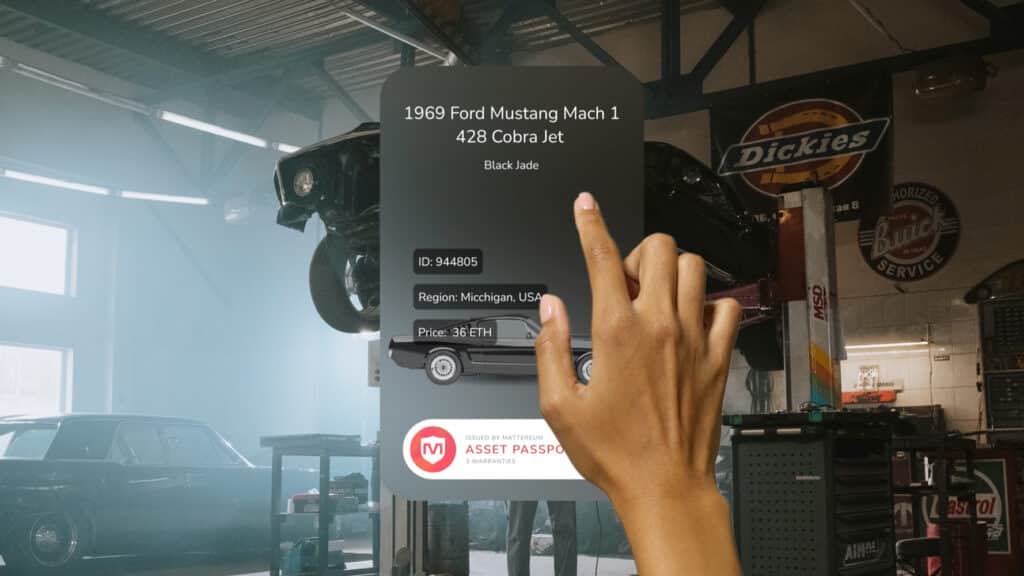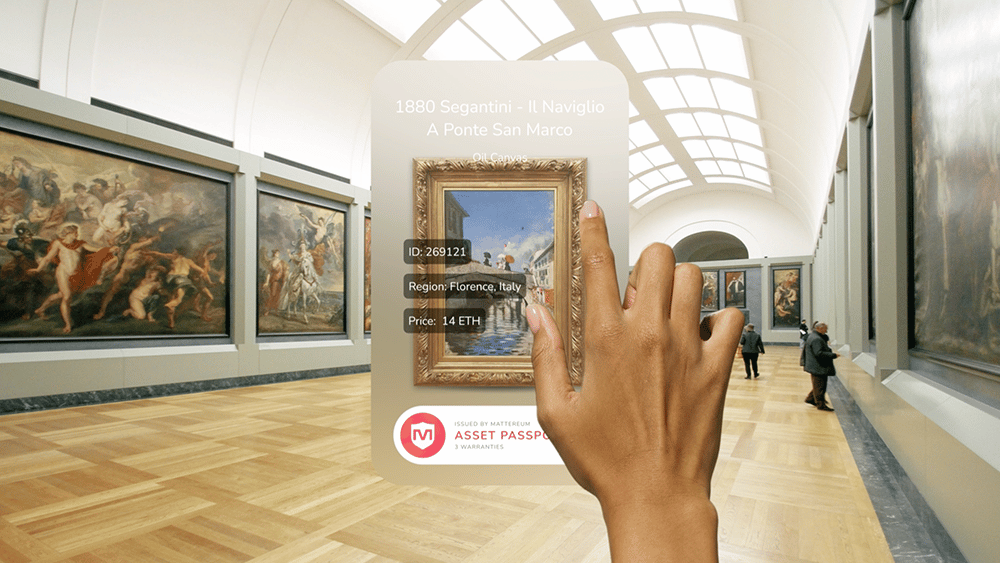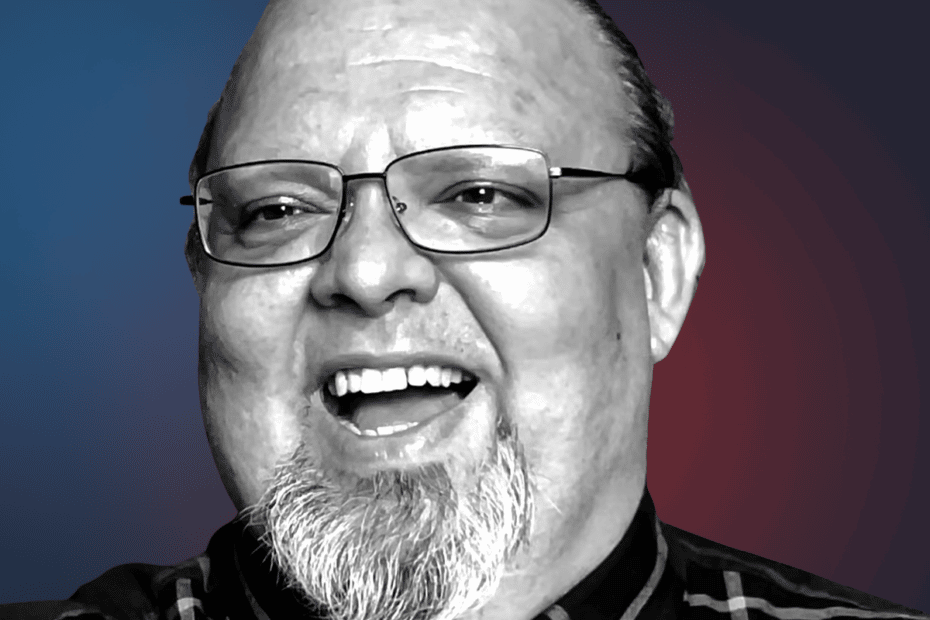In this interview, Vinay Gupta, CEO and founder of Mattereum, gives his opinion of why and how many objects will be tokenised in the future. Gupta also elaborates on the concept of a circular economy and explains how Mattereum will help bring this theory into real life. This interview is the second part of the interview with Vinay, read the first interview here: The future of goods and NFTs.
Jonas Kasper Jensen (JKJ): Do you think all objects will be tokenised in the future?
Vinay Gupta (VG): To answer your question, we have to look at small physical tags that can be attached to objects. Each one of those tags has a private key on it. When you scan it on something like a phone, a digital signature verifies the identity of the digital tag and the private key that it contains. Imagine that this is stuck onto something like a bicycle. Now we’ve got an asset passport for a bicycle. If you want to buy a bicycle, you beep your phone on it. It checks a database to make sure the bicycle isn’t registered stolen. It gives you the specification of the bicycle. It shows you the price of some more bicycles and what they’ve sold for in the last three months. Then you buy a bicycle. In the sale, you automatically get all the legal warranties, giving you hard proof that this thing is okay.

JKJ: So what I hear you say is that this will be implemented in all our goods and objects, and we will be able to exchange them faster and more efficiently than ever before?
VG: Exactly. And now we can talk about humanitarian and environmental issues. Most people own a bunch of stuff they no longer want, but they’re not willing to sell for half of what they paid or give it away. So for me, for example, I have an old laptop. This thing is probably six or seven years old. It still works fine. It runs Linux. It’s probably good for two or three years more work. And it would be great for some kid, you know, who has no money and wants some kind of computer they can learn how to program on.
It’s a perfect little thing. The problem is I can’t find a way of routing that to a buyer. If I put it on eBay, it will go for four pounds. It will cost me 20 minutes to take pictures of it and then type in a listing on eBay. And then I have to put it in a box, and I have to ship it. And at the end of the process, getting rid of it costs me a hundred pounds worth of time.
That is a problem.
If the thing had an asset passport on it, all of the information about what it is would just be right there in the asset passport, and it would be loadable in a single click. I just beep the tag on the object. I hit sell on my phone, sitting there until it sells. Once it sells, somebody comes to my house and takes it away, and I never see it again. At that point, I would suggest that something like 10 or 20% of all the property in developed world countries is like this. It could be as high as 50%.
Think about all the environmental savings if all of that property could be priced and sold. It is new manufacturing we don’t have to do. This is the real form of the circular economy. It goes round and round and round again because every sell is convenient, and you get a fair price for it. And the price ought to directly relate linearly to the number of days of service you expect to get from the object.

JKJ: What objects do you envision can be tracked on such a solution?
VG: Anything that doesn’t naturally die. Cameras run forever. Phones run forever as long as you can replace the battery. Microphones, laptops, bicycles, cars, houses. They don’t wear out like a shirt. Anything for which a rental market currently exists is probably worth asset passporting. There is a rental market for tuxedos. There is no rental market for genes.
If you just take those asset classes and create a circular economy for them, the economic efficiency gains are super dramatic. They’re enormous.
JKJ: Because all these objects are capital stored in the stratosphere of people’s houses and homes. And if you can extract that value and bring it into circulation, there’s a whole new economy opening up?
VG: That’s right. And this is what everybody was promised, but which for now largely failed to materialise. And if it happens, Mattereum will help to shape what we call the theory of change. The theory of change is a story about how something you’re doing is beneficial to other people or the world. The theory of change for Bitcoin, for example, is hyper Bitcoin. That’s the story, in a nutshell, we’re going to break the government’s ability to pass. And then the government will collapse, and everything will be a fantastic libertarian utopia. Most people think of that theory of change as being pretty weak at this point.
The state shows no sign of collapsing. In fact, the state is just going to adopt Bitcoin. So how will Bitcoin liberate us if the state just adopts Bitcoin, or they will not be able to tax you, but they can see every transaction on the chain? Are you sure they will not be able to work this out? So the theory of change for Bitcoin is pretty weak. The theory of change for Ethereum was never very clearly defined because it was a kind of Bitcoin plus smart contracts.

I’m proposing a theory of change for Ethereum, which says Ethereum can become the property rights layer for the entire world. Once we’ve got a digital property rights layer, we can do algorithm optimisation on how we hand out property. A robot comes and says, “we calculate that you live in Berlin and you’re not using your bicycle at all for the next five months, we would like to suggest that you sell your bicycle now”. You buy an option to repurchase it, if you want to, for 85% of its cost five months later, how would that be? And you’re like, “so I don’t have to store my bike for the winter, and I could repurchase it in June”. Then your bicycle goes to the south of France, and somebody rides it for five months. And then they sell it because now it’s too hot to ride in the south of France and it’s in perfect conditions for Berlin.
It sounds crazy, but if you think of the amount of time that goods sit sleeping, unused. I have a bicycle in my living room. I haven’t ridden that thing. I’ve been far too busy. Somebody else should be riding that bicycle. And if I were assured of the ability to buy another one anytime that I want to with the same specification and a fixed price, if there is no transaction cost, I’d do it tomorrow morning. This is what we’re going into. It’s this notion of perfectly efficient distribution of physical goods.
That’s the goal.
Read other stories: METAIN Introduces Real Estate Cross-Border Co-Investment Solution With Yield of Interest of 15-25% to Global Investors
Techno and Chill – A Web3 Music Marketplace Where Fans Meet Their Favorite Artists
economy economy economy economy economy economy economy



